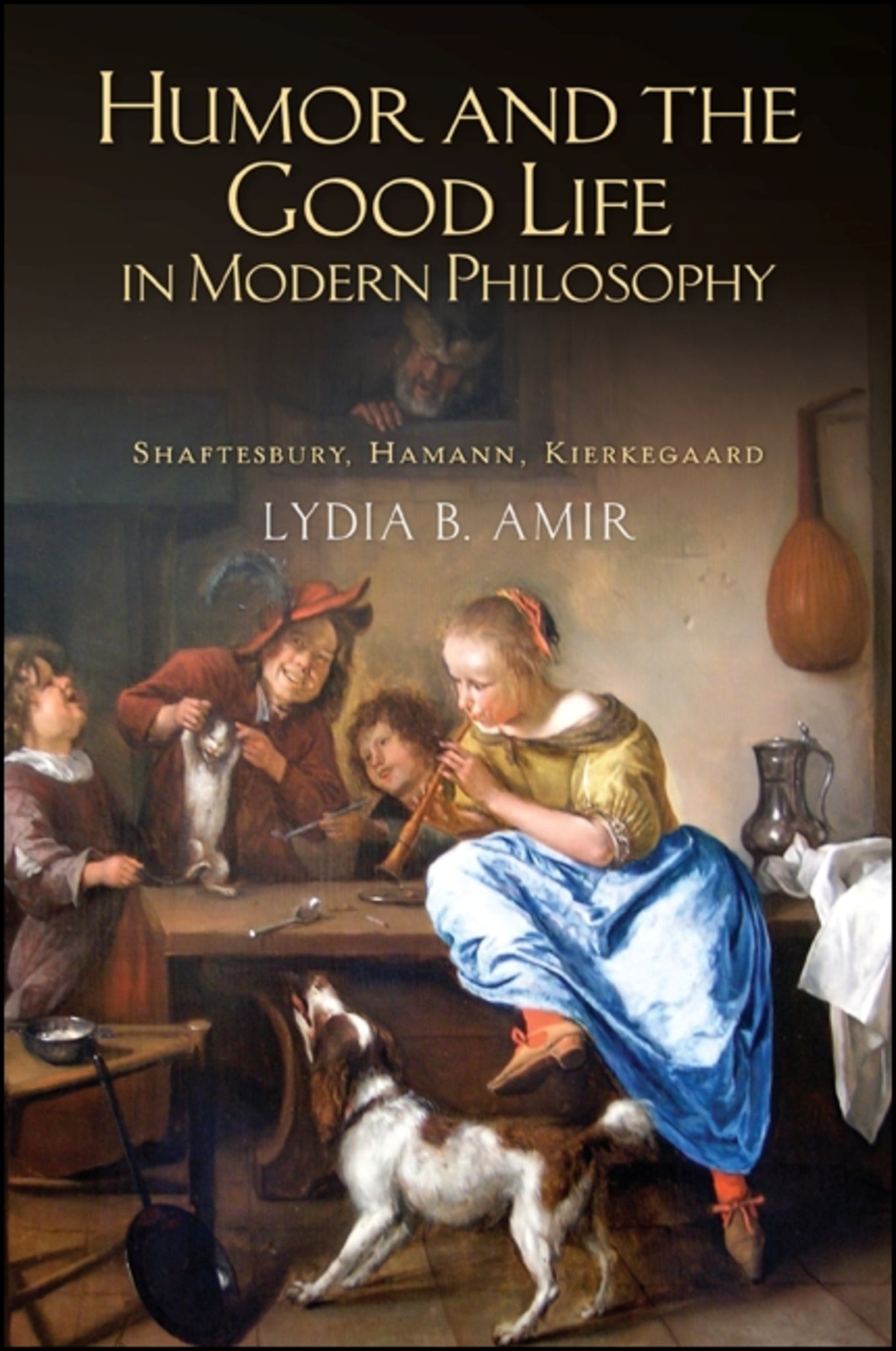We're sorry. An error has occurred
Please cancel or retry.
Humor and the Good Life in Modern Philosophy

Some error occured while loading the Quick View. Please close the Quick View and try reloading the page.
Couldn't load pickup availability
- Format:
-
02 January 2015

An exploration of philosophical and religious ideas about humor in modern philosophy and their secular implications.
By exploring the works of both Anthony Ashley Cooper, Third Earl of Shaftesbury, and Søren Kierkegaard, Lydia B. Amir finds a rich tapestry of ideas about the comic, the tragic, humor, and related concepts such as irony, ridicule, and wit. Amir focuses chiefly on these two thinkers, but she also includes Johann Georg Hamann, an influence of Kierkegaard's who was himself influenced by Shaftesbury. All three thinkers were devout Christians but were intensely critical of the organized Christianity of their milieux, and humor played an important role in their responses. The author examines the epistemological, ethical, and religious roles of humor in their philosophies and proposes a secular philosophy of humor in which humor helps attain the philosophic ideals of self-knowledge, truth, rationality, virtue, and wisdom.


"…[an] interestingly argued, well-written, scholarly work which advances an intriguing thesis. This is a wonderful addition to the literature of the blossoming subfield of philosophy of humor." — Philosophical Practice
"Lydia Amir's latest book will put in good spirits applied philosophers (both those who instruct as well as those who counsel) by showing them how humor can provide them with a useful and multiform toolbox in their professional lives … The applied philosophers reading Humor and the Good Life in Modern Philosophy will be ready to remind their students and/or consultants that laughter is food for thought, so humor must be taken very seriously." — International Journal of Applied Philosophy
"…readers are rewarded with a well-rounded account of the importance of humor to all philosophical walks of life … Highly recommended." — CHOICE
List of Abbreviations
Acknowledgments
Introduction
1. Shaftesbury: Ridicule as the Test of Truth
The Good Life
The Comic
Ridicule
Humor and Wit
Concluding Remarks: Humor, Good Humor, Ridicule, and the Shaftesburean Good Life
Intermezzo: Hamann: Humor and Irony as Categories of Understanding
The Good Life
Humor and Irony
2. Kierkegaard: Humor as Philosophy at its Best
The Good Life
The Comic
Irony
Humor
Concluding Remarks: The Comic, Humor, and the Kierkegaardian Good Life
3. Humor and the Good Life
The Comic and the Tragic
Humor
Ridicule
The Good Life
Notes
Bibliography
References
Index



